Two Pakistanis Lured With 15,000 Euro Bait For Terror Attack On Athens Jewish Center

Two Iranian-born Pakistanis accused of an Iran-funded terror plot targeting a Jewish community center in Athens were allegedly offered 15,000 Euros.

Two Iranian-born Pakistanis accused of an Iran-funded terror plot targeting a Jewish community center in Athens were allegedly offered 15,000 Euros.
The attack was discovered in a joint operation between Greek security services and Israeli intelligence agency, Mossad.
According to reports in Israeli media, the pair, who crossed into Greece illegally from Turkey, had been enticed by the financial reward, a claim corroborated by Greek authorities.
Greek Public Order Minister Takis Theodorikakos said earlier this week: “From the evidence we have obtained, the motivation appears to be financial. The organizer they consulted with was a fellow countryman in Iran,” he said, speaking to Antenna television.
It is the latest such incident in which Iran-funded agents target Jews and Israelis. In June last year, a group of Israeli tourists were airlifted out of Istanbul just moments before Iranian-funded terrorists committed a terror attack in the Turkish capital.
Israel’s Prime Minister Benjamin Netanyahu released a statement this week reiterating the ongoing threat to Jews and Israelis by “an extensive Iranian network run from Iran and spanning many countries".
Greek authorities named the suspects as only Haydar, 27, and Hussein, 29. They are wanted along with three other Pakistanis in Athens, part of a terror cell masterminded and funded from Tehran.
The suspects both entered Greece illegally from Turkey and had been in the country for at least four months.
It is possible further attacks were being planned, with a third suspect discovered outside Greece, and charged in absentia.
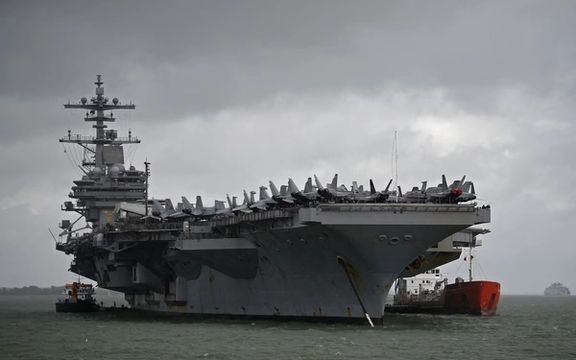
The US has decided to extend the deployment of the George H.W. Bush carrier strike group after last week's deadly attacks by Iran-backed forces.
The decision likely means the Bush strike group and its more than 5,000 US forces, which are now in the European Command operational area, will not be returning to home port in the United States on schedule.
US Central Command (CENTCOM) spokesperson Colonel Joe Buccino said: ”The extension of the George HW Bush Carrier Strike Group, inclusive of the USS Leyte Gulf, the USS Delbert D. Black, and the USNS Arctic, allows options to potentially bolster the capabilities of CENTCOM to respond to a range of contingencies in the Middle East.”
Buccino also noted a scheduled, expedited deployment of a squadron of A-10 attack aircraft to the region at a time when many of the country’s forces had been hoping for a withdrawal after an eight-year US deployment where along with Kurdish-led partners, the US is battling against the remnants of Islamic State
News of the deployment came a day after the Pentagon doubled its tally of American troops wounded in last week's attacks in Syria to 12, following the diagnosis of six US military personnel with traumatic brain injuries. The attacks also killed an American contractor and injured another.
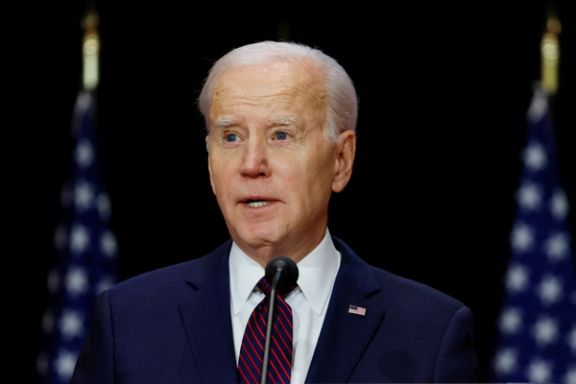
President Joe Biden warned Iran last week that the United States would act forcefully to protect Americans. The Pentagon has estimated eight militants were killed during retaliatory US airstrikes against two Iran-linked facilities in Syria during the tit-for-tat exchanges triggered by the first March 23 attack against a US base near the Syrian city of Hasaka.
Meanwhile, a senior member of the Russian military has called the US actions in Syria “provocative”. Russia, which wants the US presence removed from the area to allow it greater control, accused US forces of being spotted in areas outside the agreed zones.
Hundreds of ISIS fighters remain camped in desolate areas where neither the coalition nor the Syrian army exert full control. Russia - which together with Turkey is carrying out joint patrols in northern Syria - has agreed special zones where the coalition can operate.
Russian Rear Admiral Oleg Gurinov, head of the Russian Reconciliation Centre for Syria, told Russian news agency Tass that US forces had been spotted twice in areas which lay outside the agreed zones.
"Provocative actions on the part of US armed forces units have been noted in Hasaka province”, adding that the Russian side has lodged a protest with the coalition.
Russia intervened in the Syrian Civil War in 2015, tipping the balance in President Bashar Al-Assad's favour, leaving in its wake a complicated power struggle. Moscow has since expanded its military facilities in the country with a permanent air base and naval base.
Clearly aligned with Iran, which is supplying Russia with drones being used in its invasion of Ukraine, a Russian presence only strengthens Iranian influence in a region where Iranian proxies continue to wreak havoc.
Of 83 attacks in Iraq and Syria since President Joe Biden took office, just four retaliations have taken place, according to the Pentagon.
Republican lawmakers have demanded a more forceful deterrence against the Iranian regime, arguing that weak responses will invite more attacks on US forces.
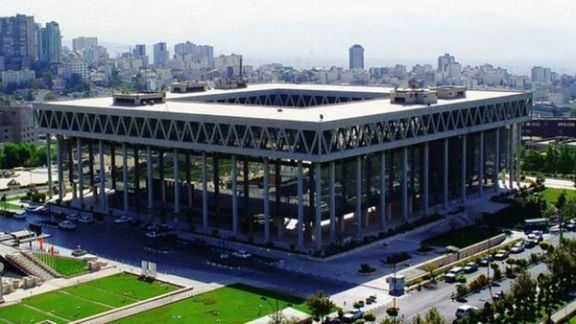
Reformist commentator and seasoned journalist Abbas Abdi says the "Iranian state television is not a media outlet. It is a propaganda tool that has lost its influence."
Speaking to Jamaran News website, Abdi said that that the Iranian state TV wishes to be the only organization that sends messages to the people, but this is no longer possible.
Abdi argued that the state TV disseminates its ideological and propaganda programs and foreign-based Persian speaking media broadcast a different message, but it is the public who decides which one to follow and believe.
"Any media outlet that is used as a tool for political propaganda will lose its influence," Abdi said, adding that "the fact that the state TV sends messages does not mean that the nation will necessarily get those messages. The public in Iran has its own expectations and awaits messages that are based on those expectations." That probably is why the audiences welcome the messages that come from foreign-based media particularly when there are very few independent media outlets in Iran , he said.
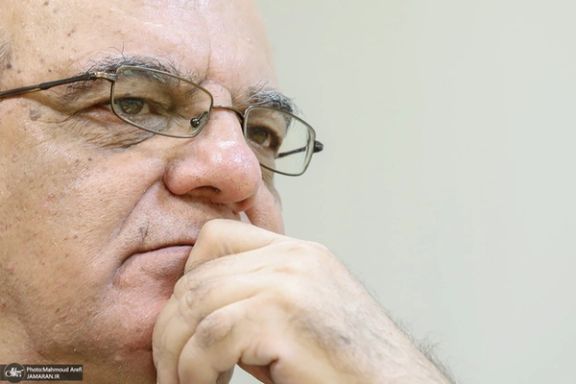
Abdi said, "Twenty years ago we used to tell the government that you cannot stop satellite television. Now we tell the officials that you cannot stop the Internet." He added that trying to stop the Internet is a mistake. "When the official media of a country is as inefficient as Iran's state TV, naturally foreign-based media take the lead," he said.
He further added, "The state television's performance is based on presenting narratives, not truth. And it fails to understand that five different reporters might tell the truth in five different ways without telling lies. The main material the media use is the truth."
Abdi said that social media have removed the borders between Iran and other countries. Nonetheless, what it presents is not exactly the truth or the whole truth. Those who are on social media do not necessarily represent the whole population. "It would be a mistake to generalize what you see on social media," he warned. "For example, social media has portrayed regime change as an easy task." He reminded that "You could be active on social media without your comments costing you too much. Of course, social media are part of the society, but you cannot reduce the society to what is going on social media platforms."
Abdi added that one of the reasons why social media are so effective is that the real world has many problems. Currently, he stressed, the Iranian government has lost the war of narratives to foreign-based media.
A March 30 report on Khabar Online website assessed a talk show on state TV which tried to give voice to Iranian intellectuals and academics in the aftermath of recent protests giving them an opportunity to offer their solutions for the dangerous political impasse. However, according to Khabar Online, it appears that open-mindedness did not last more than two months on the Iranian state TV.

In one program, sociologist Taghi Azad Armaki observed that the middle class as part of the society that could have mediated between the government and the rest of the population no longer exists, because of growing poverty. In another program academic Mohammad Fazeli called on the fundamentalist government to understand Iran's modern society and stop intervening in people’s private lives.
As the broadcast of the program stopped after some 8 weeks and the state TV returned to its unilateral rhetoric against the people and their civil liberties, this could mean that the government is not interested in listening to well-wishing voices.
This once again recalls Abdi's statement about the Islamic Republic's defeat in the war of narratives, and the state TV's solution, like always is typical of government officials: Ignoring the problem rather than bothering to solve it.
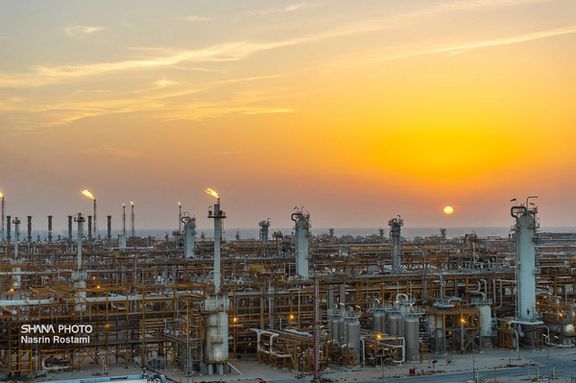
Despite Iran’s severe shortages of natural gas and inability to attract foreign investment in the sector, the country is among the most wasteful in terms of gas flaring.
In its annual report released on Thursday, the World Bank said while significant progress has been made in reducing gas flaring worldwide in 2022, the top nine flaring countries continue to be responsible for the vast majority of the waste.
Second only to Russia, Iran is on top along with Iraq in terms of volume and intensity. These are, in order, Russia, Iraq, Iran, Algeria, Venezuela, the United States, Mexico, Libya, and Nigeria, the report revealed. These countries account for nearly three-quarters of flare volumes and just under half of global oil production.
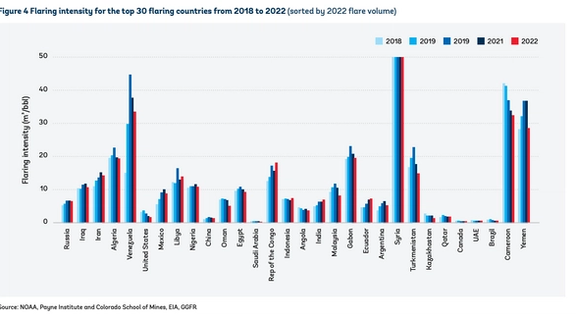
“Consistent with previous years, flaring during 2022 was dominated by a relatively small number of countries, with the top nine flaring countries responsible for 74% of flare volumes and 45% of global oil production," the report read.
According to the report, volumes flared fell by 5 billion cubic meters (bcm) to 139 bcm, the lowest level since 2010 but Iran burned and wasted about 17.5 billion cubic meters of its gas while pumping out crude oil in 2022. Considering global gas prices last year, the value of such a huge loss is estimated at about $10 billion.

Iran, which has not installed the needed equipment to collect the gas that is extracted while drilling for oil at oilfields, burns it off in a wasteful process known as "gas flaring." The flares are the giant flames often seen near oil fields.
Gas flaring has been condemned as a danger to the environment and human health, as well as a waste of fuel, and the World Bank has been calling on energy companies to stop almost all flaring by 2030.
According to the Iran’s oil ministry, some $5 billion is needed for curbing gas flaring, which constitutes about 7% of the country’s total gas production. For comparison, it is equal to 30% of Turkey’s total gas consumption in 2021 or Iran’s total gas exports to Iraq and Turkey during 2021. Iran’s gas flaring levels increased by 32% year-on-year to 17.4 billion cubic meters (bcm) in 2021 and stayed about the same during the previous year.
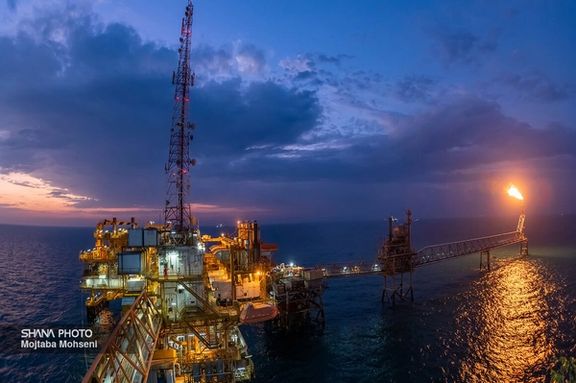
Despite regime officials predicting a "harsh winter" for Europe, most countries have managed their energy needs, but a serious natural gas shortage gripped Iran in winter. Reports from Iran said in January that many state organizations and industrial towns in different provinces were forced to reduce working hours because of the energy shortage. With natural gas shortage, Iran resorted to burning mazut at power stations, which is an extremely polluting fuel compared with cleaner diesel.
Iran, which has the world’s second largest gas reserves, has failed to make significant investments in its oil and gas sectors for at least 10 years as international sanctions (2011-2015) and US oil export sanctions since 2018 have limited the country’s financial resources. The distribution network also needs upgrades as more than 25 percent of the gas is lost during transfer. In November 2022, Owji said that at least $160 billion in investments is needed to revitalize oil and gas sectors.
Iran's gas production and extraction capacity is limited to around 800 million cubic meters per day. According to the ministry of energy, about 650 million cubic meters are consumed in the domestic, commercial, and administrative sectors, however, the data has changed a lot in different years and contradict international estimates.
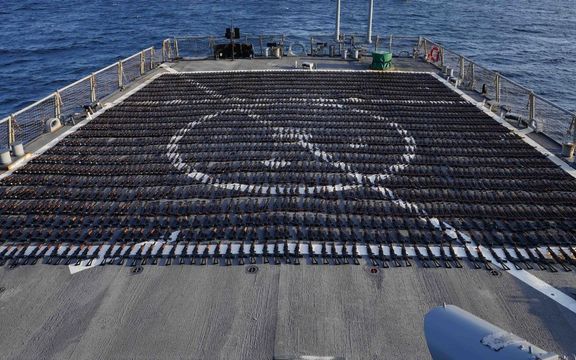
The United States has filed a forfeiture complaint over one million rounds of ammunition and other materiel seized by the US Navy in December during transit on the high seas.
The Justice Department announced Friday that in addition to the rifle and machinegun ammunition, the Navy also seized thousands of proximity fuses for rocket-propelled grenades and thousands of pounds of propellent, disrupting “a major operation by Iran’s Islamic Revolutionary Guard Corps (IRGC) to smuggle weapons of war into the hands” of Iran-backed Houthis in Yemen.
Both the US and British navies have seized weapons and ammunition in recent months enroute to Yemen in Gulf of Oman or the Arabian Sea.
Iran has been rendering military and financial support to the Houthis who overthrew Yemen’s government in 2014 and have continued to fight a Saudi-led coalition that backs the internationally recognized government.
“The Justice Department is now seeking the forfeiture of those weapons, including over one million rounds of ammunition and thousands of proximity fuses for rocket-propelled grenades,” Attorney General Merrick B. Garland was quoted as saying in the statement. “The Justice Department will be relentless in holding accountable those who break our laws and threaten our national security.”
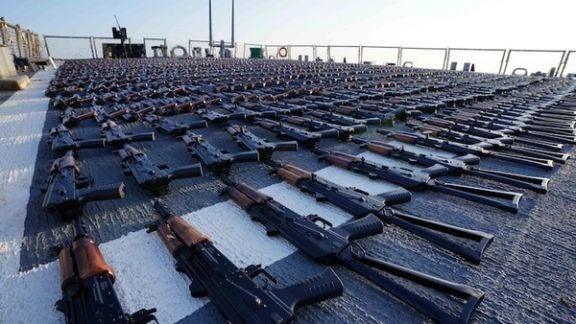
The Biden Administration has adopted a tougher stance toward the Iranian regime since September after long-running nuclear talks reached a deadlock in what the US says was unreasonable demands by Tehran.
A deadly crackdown on protests by the regime that killed more than 500 civilians and delivery of killer drones to Russia that have been used against civilian targets, have also played a role in shaping Washington’s tougher position.
“This forfeiture action prevents ammunition and dangerous weapons from falling into the wrong hands and highlights the importance of our investigative work to deny criminal and terrorist networks their instruments of violence and destruction,” said Secretary of Homeland Security Alejandro N. Mayorkas. “I am extremely proud of the critical investigative role played by Homeland Security Investigations alongside our law enforcement and Department of Defense partners in a collaborative whole-of-government effort.”
It is not clear what practical difference the forfeiture would make in this case after the weapons were seized from an un-flagged vessel with no proper documentation to carry weapons in international waters. With no clear owner of the goods, there would be no legal party to claim the cargo.
“This forfeiture action aims to stop in its tracks yet another attempt by Iran’s Islamic Revolutionary Guard Corps and its proxies to fuel violence and conflict around the globe,” US Attorney Matthew M. Graves for the District of Columbia said. “The US Attorney’s Office for the District of Columbia will use all our tools, including our jurisdiction to seize and forfeit assets, located abroad, to disrupt the IRGC’s efforts to sow discord.”
Iran and Saudi Arabia, the two main foreign parties to the conflict in Yemen, sign a deal March 10 to restore diplomatic ties. Analysts believe that Riyadh’s main goal for the agreement is to end the conflict and focus on its economic progress.
However, this would take further negotiations and it is not clear to what extent the Iranian regime is willing to compromise, without making more demands, such as economic benefits from any cooperation.
Iran also ships weapons to its allies and militant proxies in Syria and Lebanon. Israel has been conducting air and missile strikes on Iranian warehouses and weapons shipments since 2017, to deny the arming of hostile forces.
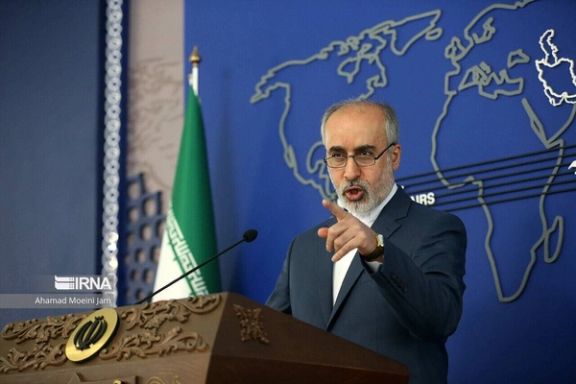
The Iranian Foreign Ministry has called crisis talks with Azerbaijan officials after comments at the opening of its embassy in Israel suggested a united front against Iran.
Israel’s foreign minister, Eli Cohen, called Iran “a regional threat”, raising alarm bells among regime officials who fear its archenemy is using Azerbaijan as a base to launch attacks on the Islamic Republic.
Cohen said, “Israel and Azerbaijan must share the same understanding regarding the Iranian threat. Iran threatens our region, and creates non-stability in the Middle East by supporting and financing terrorism. We should jointly act against Iran. We should not allow Iran to expand its nuclear opportunities.”
In a stark warning, Iran’s foreign ministry spokesman, Nasser Kanaani, said the regime is watching. “It is expected from Azerbaijan's government to stay away from the trap set by enemies of the two countries' relations," he said.
Though Israel has had a diplomatic presence in Azerbaijan since the 90s, the move to open an embassy in Tel Aviv was a major diplomatic coup for Israel, as it further deepens ties with its Muslim neighbors.
”It is evident that the Islamic Republic of Iran cannot remain indifferent to the Zionist regime's plot from the soil of the Republic of Azerbaijan,” Kanaani added.
Earlier in the month, Azerbaijan's new ambassador to Israel Mukhtar Mammadov, said his country would not let Israel’s military to use Azerbaijan as a base for a possible attack against Iran, denying previous reports about preparing an airfield to assist Israel during possible attacks on the Islamic Republic.